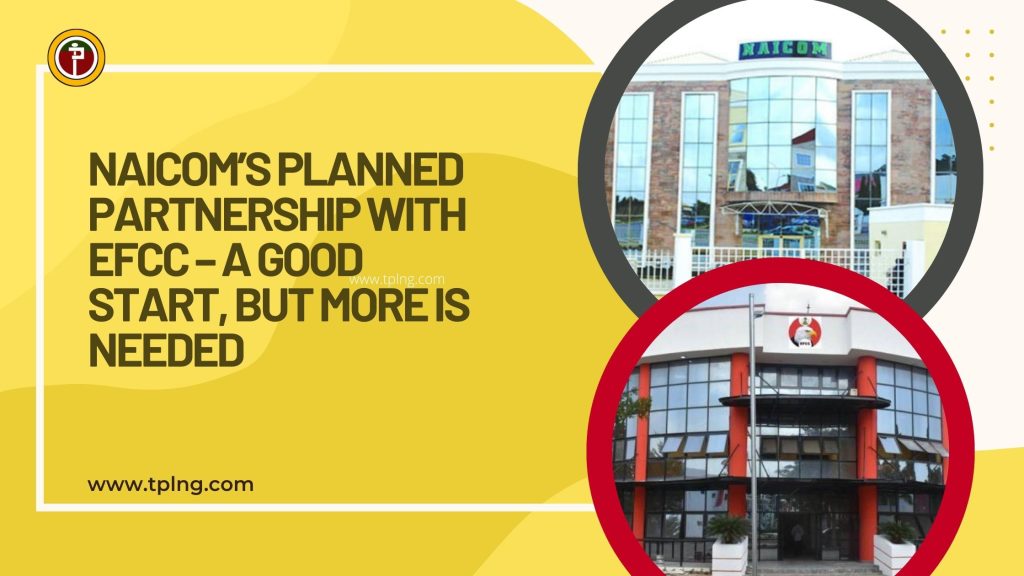The planned partnership between the National Insurance Commission (NAICOM) and the Economic and Financial Crimes Commission (EFCC) is a promising move towards cleaning up Nigeria’s insurance sector. However, while this planned collaboration shows intent, it must go further to create a real impact.
Strengthen the Collaboration Framework
The planned partnership should begin with a clear, actionable plan focusing on effective anti-money laundering (AML) and counter-terrorism financing (CFT) enforcement. This requires a structured approach with defined goals, rather than symbolic gestures.
Revitalize NAICOM’s AML/CFT Unit
NAICOM’s existing AML/CFT unit is currently less effective and needs revitalization. To enhance its effectiveness, the unit needs more dedicated staff and continuous training. A well-structured industry compliance program, led by this unit, would standardize practices and drive better oversight across the sector.
Enhance Internal Compliance
NAICOM must ensure that insurance companies strengthen their internal compliance frameworks, enforcing strict Know Your Customer (KYC) procedures and regular audits. Effective regulation starts from within, and a strong compliance culture will help detect issues early.
Improve Data Sharing and Risk Assessment
A centralized platform for real-time data sharing between NAICOM, EFCC, and insurers can enhance transparency and streamline investigations. Additionally, a proactive risk assessment framework is essential to identify vulnerabilities and mitigate threats before they escalate.
Boost Consumer Awareness
NAICOM should also focus on educating policyholders about their rights and the risks of fraud. A public awareness campaign would help create a more informed and vigilant consumer base, further strengthening the industry’s defenses.
In all, the NAICOM-EFCC planned partnership is a good start, but more decisive actions are needed. By revitalizing the AML/CFT unit, enhancing internal compliance, and adopting a proactive regulatory approach, NAICOM can build a stronger, more resilient insurance sector. It’s time for robust reforms to secure the industry’s future.




